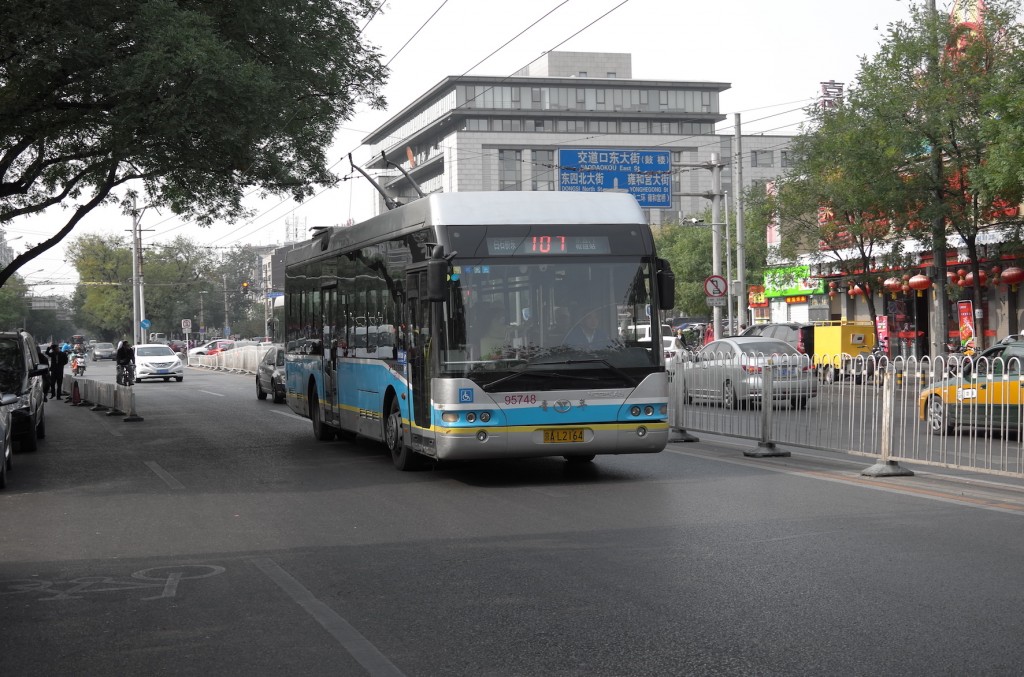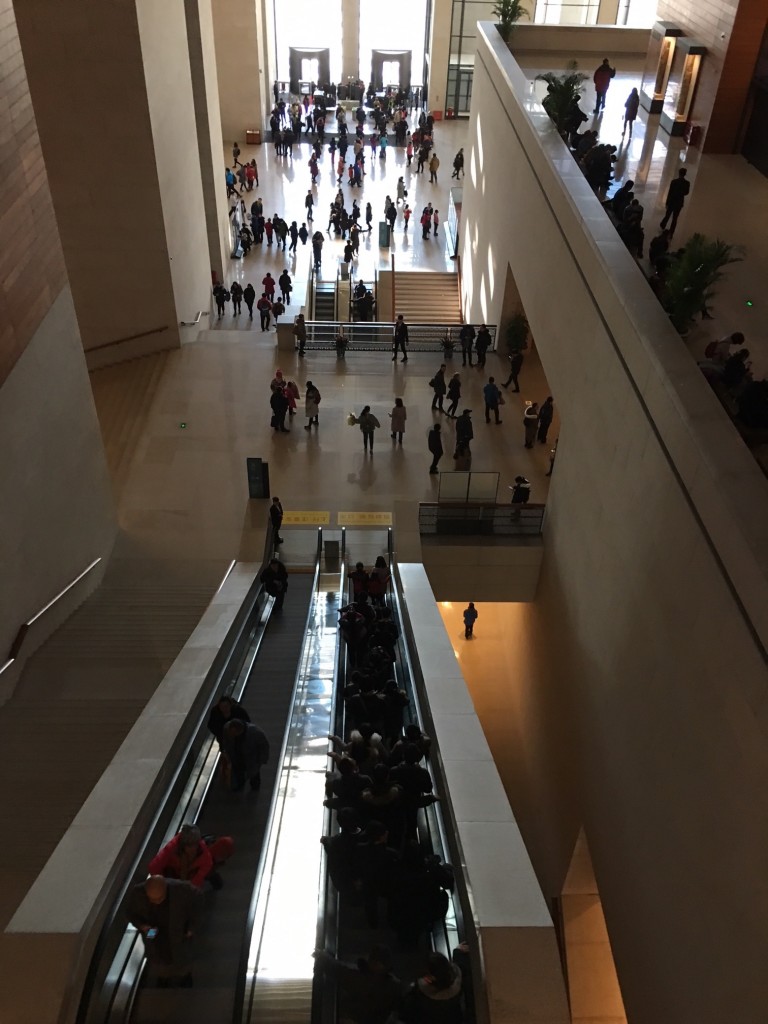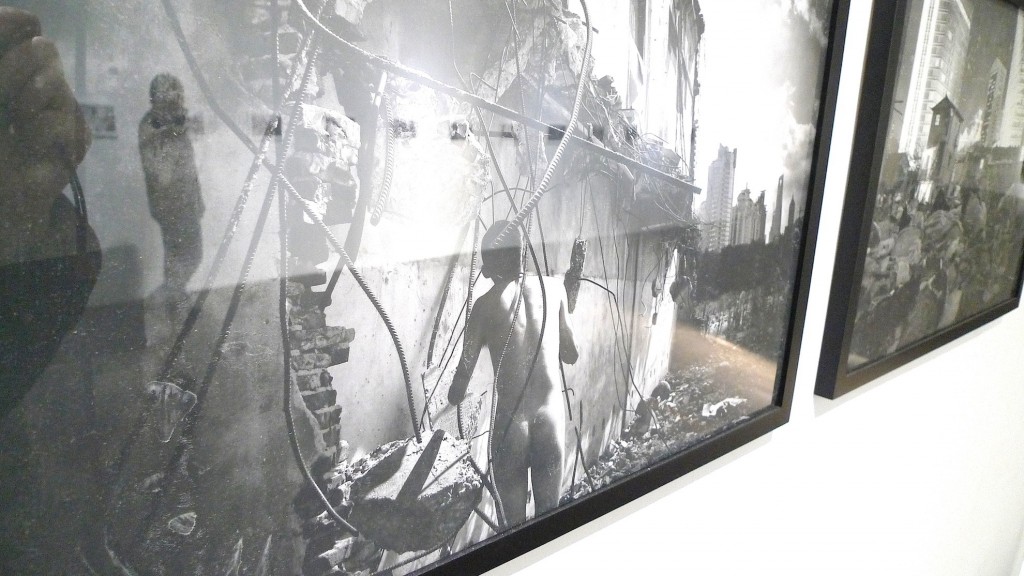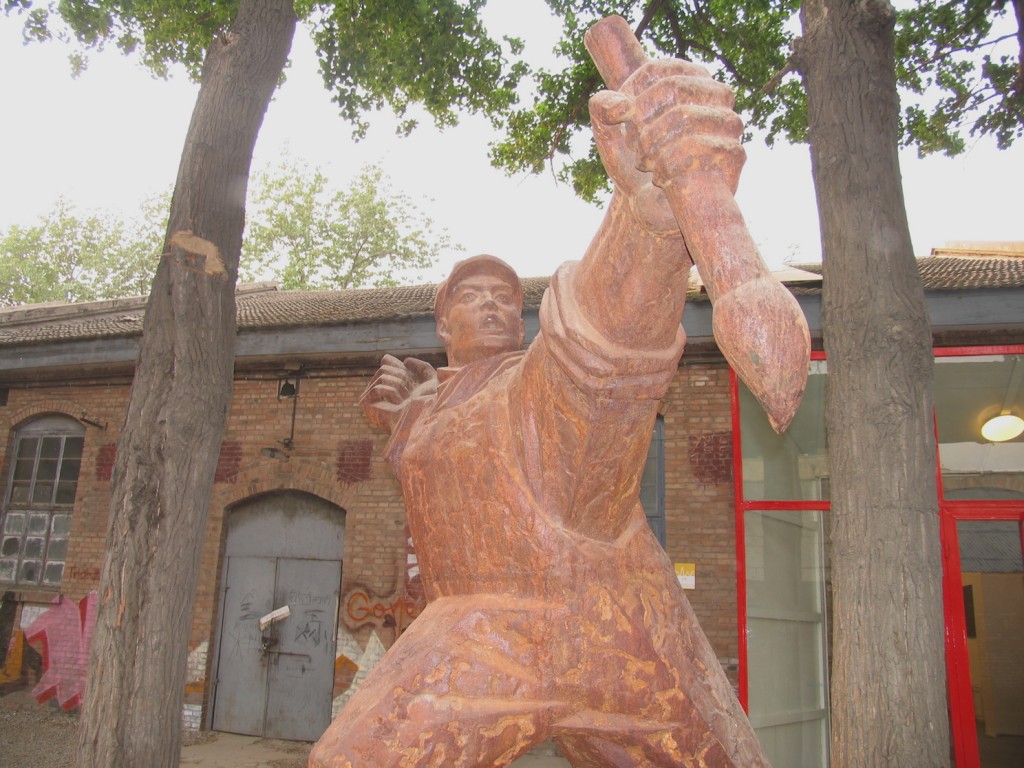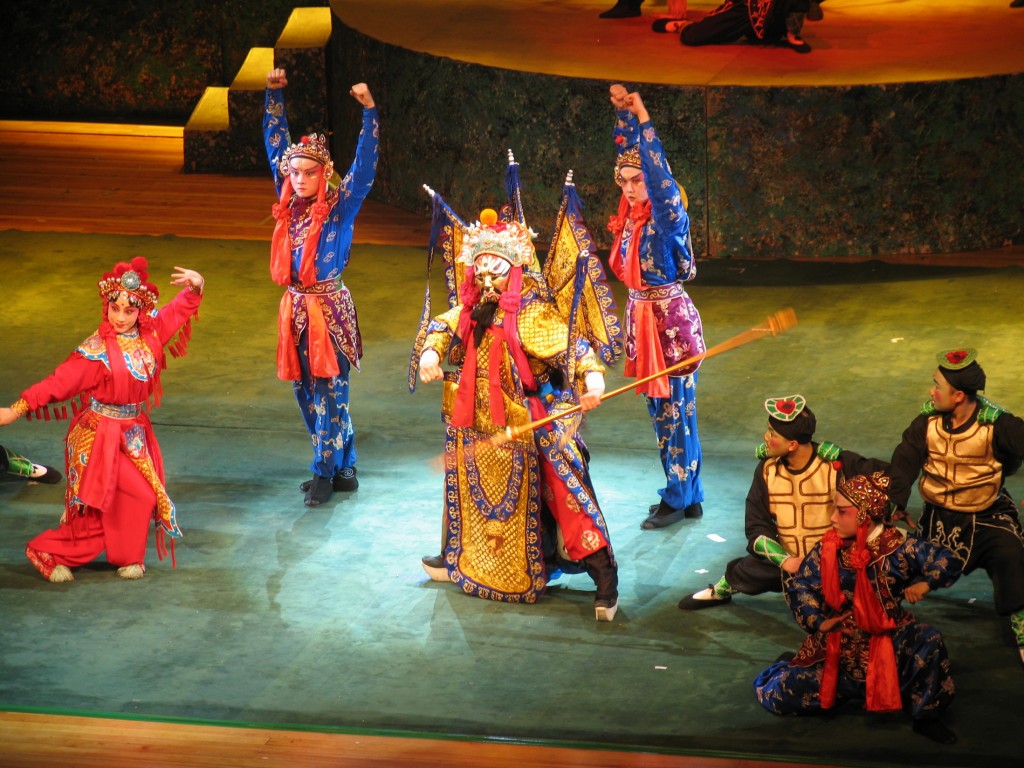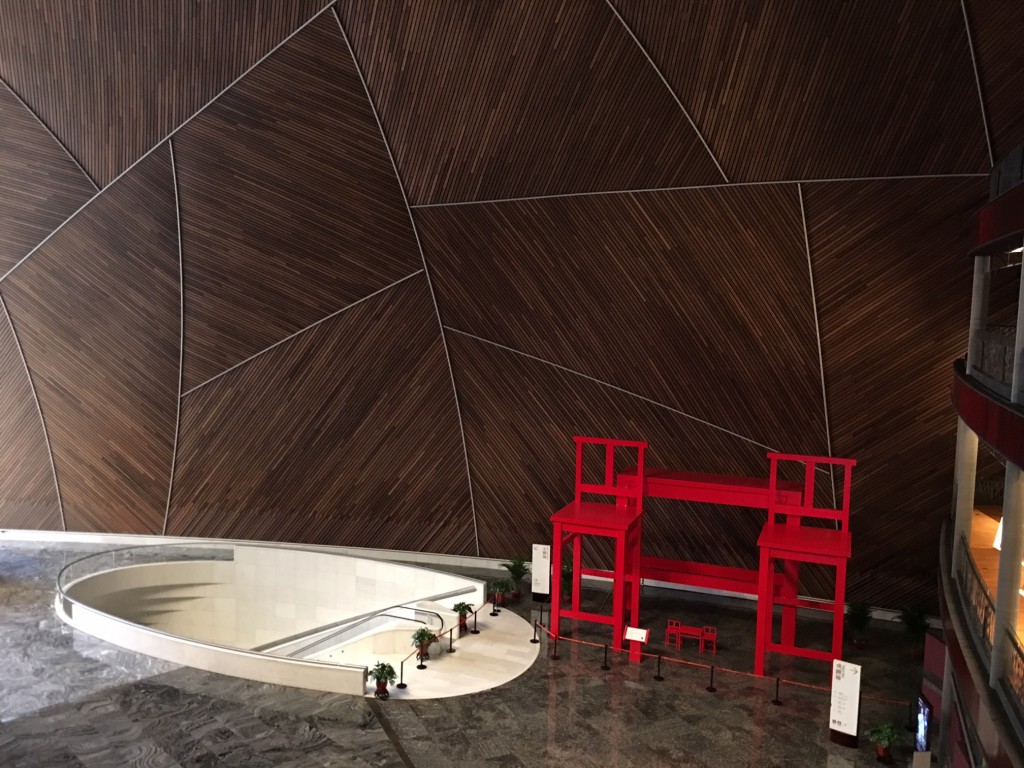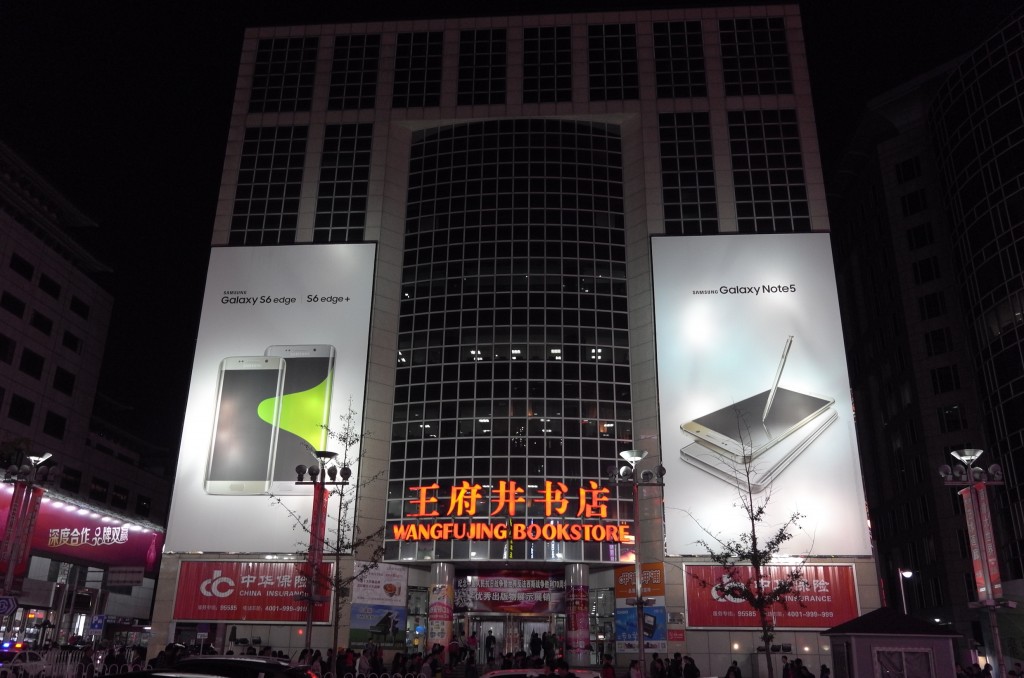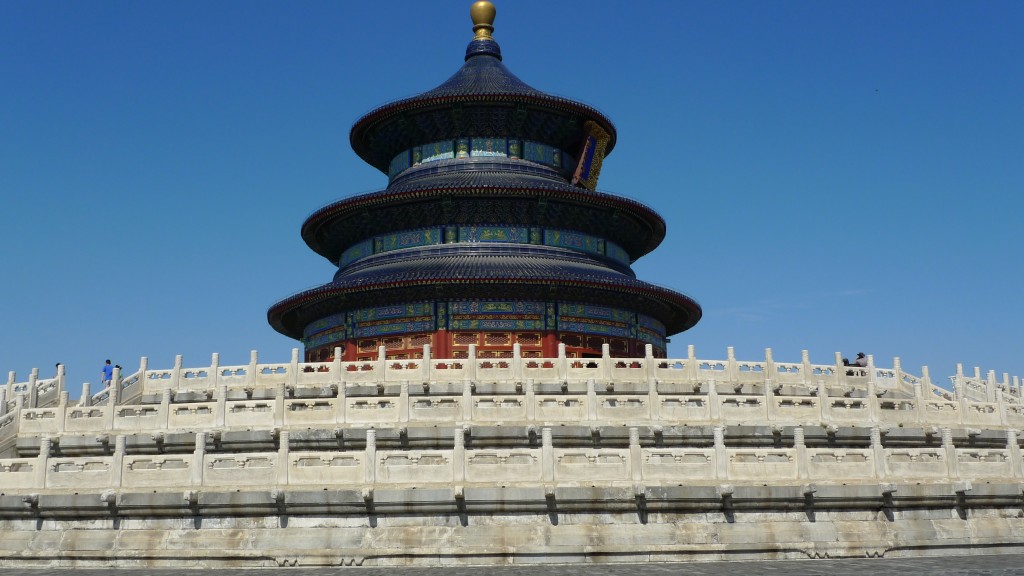Top Secret – Beijing Has Become One Of The Greatest Cities On Earth!
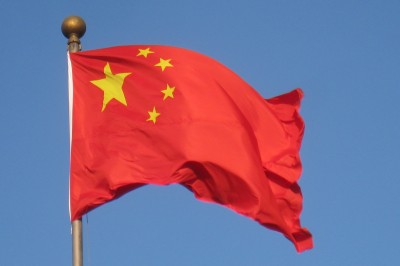
Open your eyes and see for yourself. Unclog your ears and hear. Discard your preconceptions, of all those propaganda refrains that are accompanying the myriad of brainwashing tunes that are being spread by the Western indoctrination media.
For decades, smearing Beijing, while negating its greatness, has been one of the most effective weapons used by the US and Europe in their cultural anti-revolutionary war against all those great independent nations of the planet, especially China.
For those who want to taste the reality, the best advice would be: enter Beijing and let Beijing speak for itself, without an intermediary or ‘interpreter’. But could it be done? Aren’t biases already too deeply engrained in the psyche of most of the people worldwide, people that are bombarded by professional disinformation campaigns manufactured by the Empire and its mouthpieces?
“I used to cry almost every night, from hopelessness and pain,” I was once told by one of the greatest contemporary concert pianists, Yuan Sheng, who decided to return to his native Beijing many years ago. “When I lived in New York, when I read and heard all those lies about my country and my city, I felt so helpless. I couldn’t explain the truth, as nobody around me was willing to listen.”
Old rattles have been played day and night on the BBC, the CNN and many other official channels of the West: the tear-jerking stories depicting the plights of the migrant workers, or some gruesome portrayals of China’s human rights record (all based on extremely arrogant Western dogmas, thoroughly incompatible with Chinese and Asian culture), or the mainstream interpretation of the Tiananmen Square events, or the loud and hypocritical laments about the disappearance of some old neighborhoods, and not to speak of the loud salvoes fired against Beijing’s ‘disastrous’ air pollution and traffic jams.
When a tremendous effort by the government had been made to accommodate the migrant workers arriving from the poorer provinces to Beijing and to other major cities, and when, simultaneously, the standard of living began to rise dramatically all over the Chinese countryside, the topic got quietly shelved. Hardly any credit has been given to the country’s leadership.
When new evidence about the 1989 Tiananmen events began to surface, when it was proved, again and again, that the West actually infiltrated and supported the so called ‘student pro-democracy movement’; and when the facts about the extremely violent nature of many of those ‘students’ became simply undisputable, the Western media clenched its fists and never backpedaled, never bothered to present arguments ‘from the other side’. On the contrary, it turned up the volume of its monotonous propagandist cacophony. Until now, in the eyes of the general Western public, Tiananmen Square is synonymous with ‘oppression’ and not with the great revolutionary history and stunning monumental beauty.
Brian Becker wrote for LiberationNews.org :
The fictionalized version of the “massacre” was later corrected in some very small measure by Western reporters who had participated in the fabrications and who were keen to touch up the record so that they could say they made “corrections.” But by then it was too late and they knew that too. Public consciousness had been shaped. The false narrative became the dominant narrative. They had successfully massacred the facts to fit the political needs of the U.S. government.
“Most of the hundreds of foreign journalists that night, including me, were in other parts of the city… Those who tried to remain close filed dramatic accounts that, in some cases, buttressed the myth of a student massacre,” wrote Jay Mathews, the Washington Post’s first Bureau Chief in Beijing, in a 1998 article in the Columbia Journalism Review.
Mathews’ article, which includes his own admissions to using the terminology of the Tiananmen Square massacre, came nine years after the fact and he acknowledged that corrections later had little impact.
As for violations of human rights in China in general and Beijing in particular, only one (Western) view is commonly presented in the West. As Tom Zwart (professor of cross-cultural law and human rights at Utrecht University) wrote on January 21st, 2017 for China Daily:
Generally, Western states seem to be strongly attached to promoting their own position and using it as a benchmark to judge others… While Western states are uncompromising about their own stance on human rights, China is keen on achieving harmony and therefore attaches less value to human rights dogma.
That is certainly a nobler approach, but the loud shouting, simplifications and vulgar insults coming from the Western media, politicians and academia, are effectively indoctrinating billions worldwide.
But let’s return to Beijing.
The Demolition of several old hutons in the capital was never presented (by Western media) for what it really was: as part of the great effort to improve living conditions and sanitation of the poor people. Instead it was portrayed as some atrocious crime against the city’s history and culture. Never mind that all truly architecturally valuable old neighborhoods were painstakingly preserved and restored, as were actually almost all important structures of the capital. Never mind that when asked, most huton dwellers are actually grateful for being awarded with comfortable and modern flats.
What about pollution? I encountered people in all corners of the world, who swore that they would never set foot in Beijing, as the pollution levels there are hazardous, almost murderous. Most of these same people said that they’d have no objections to travel to much more polluted cities which are located in the ‘client’ states of the West and therefore managed to escape the toughest criticism: Jakarta, Manila, Phnom Penh and Bangkok, to give just a few examples.
There is hardly any mention, at least in the West, that for years and decades Beijing has been engaged in an epic fight against pollution and in support of the environment: the massive improvement of ecological public transportation (already 17 mostly modern metro lines are in service, countless trolley bus lines, encouragement of electric vehicles, wide sidewalks and introduction of shared bicycles, plus several revolutionary new forms of public transportation soon to be introduced). There are tough emission controls in place, and a ban on scooters. There is also the huge expansion of green areas around and inside the city, as well as the recently imposed ban on smoking (one of the toughest in the world).
It was recently reported by local Chinese media outlets (including China Daily) that:
The Beijing-Tianjin-Hebei region saw improvements in air quality in 2016… the average concentration of PM2.5, a hazardous pollutant, has decreased by 33 percent compared to the level of 2013…
Many other indicators have improved as well, although mentioning this fact on regular basis in the mainstream Western media would be ‘unacceptably pro-Chinese’.
*
In the last two decades, Beijing has become one of the world’s most exciting cities.
Its cultural life is second to none.
One of the curators of the National Center for Performing Arts (also known as “The Egg”, the largest opera house and performing center in the world) once explained to me:
When I used to live in London, I was dreaming about all those great world-class musicians and performers. Now I’m having meetings and dinners with them, all the time. It is because almost all great artists want to come to Beijing; to perform here.
One of the greatest (and free for all) museums on Earth, the China National Museum, is presently hosting two parallel world-class exhibitions: on the archeological treasures of Saudi Arabia, and the other on the collection from the Louvre Museum. In that institution, some of the greatest masterpieces of Salvador Dali rub shoulders with Chinese revolutionary art and anti-imperialist manifestos.
But now there are actually dozens of world-class museums and concert halls all over Beijing. In the iconic “798” (an old and massive weapons factory located on the outskirts of the city, which used to cover several square kilometers), literally hundreds of avant-garde art galleries are exhibiting everything from Western mainstream art including Andy Warhol or fashion images of Conde Nast, to the most ‘outrageous’ and politically daring ‘radical’ art, critical of the West, of capitalism, in China, and even of the government itself, is on display. It is mind-blowing! There is nothing like this anywhere in the West. Beijing artists are without any doubt much more innovative, daring and free than those in Paris, London or New York.
And on the other side of the city, around the ancient lakes and canals, dozens of clubs are hosting great bands from Africa and other parts of the world.
A prolific writer based in China, Jeff Brown contributed to this essay:
Beijing is one of the world’s greatest repositories of ancient history and modern humanities, showing off hundreds of world class museums, galleries, parks, temples, squares, shrines, monuments, mountains, lakes and rivers – all within a one-hour drive of the city center. You don’t need a car anyway. Beijing has the world’s largest metro system, 1,000 public bus routes and 66,000 licensed taxis to get you to all these myriad sites.
Since 1949, metropolitan Beijing has planted over a half a billion trees, shrubs and flowering bushes, as well as millions of square kilometers of green belts along the fringes of the nearby Gobi Desert, to stop its southern advance and to reduce dust levels blowing in from the north. By 2050, Beijing will have planted 100 billion trees to its north, covering more than ten percent of the country’s landmass
This greenification program continues with a passion and love for nature. Beijing has identified and coddles, like rock stars, 40,000 urban trees that are over 100 years old, some dating back more than 1,000 years
http://www.fao.org/docrep/u9300e/u9300e04.htm.
Contrary to ceaseless propaganda in the West, Beijing and all of China’s cities have shown nonstop improvement in air quality, and Beijing is spending billions to keep bettering its environment. This has been going on since the 1990s, something I can personally attest to
http://www.chinadaily.com.cn/china/2017-01/04/content_27853288.htm.
Tetovo, Cairo, Kathmandu, Accra, Manila, Delhi, Beirut, Ulaanbaatar, Baku, Dhaka and Sao Paulo, among others, all had higher 2016 pollution indexes than China’s capital, but only Beijing gets the mainstream media black eye
https://www.numbeo.com/pollution/rankings.jsp?title=2016.
Why? Because Beijing is the heart and soul of the Communist Party of China (CPC) and thus, is not a NATO doormat and puppet, an intolerable affront to Western capitalism.
Proud, forward-looking, full of hope and dreams, Beijing is marching forward.
The West which is clearly in permanent decay, is shooting its poisonous but powerless arrows tinted with nihilism and spite, towards the great capital of this enormous nation which, after a long and dark period of humiliation and suffering is finally reclaiming its rightful place in the world.*
Andre Vltchek is a philosopher, novelist, filmmaker and investigative journalist. He has covered wars and conflicts in dozens of countries. Three of his latest books are revolutionary novel “Aurora” and two bestselling works of political non-fiction: “Exposing Lies Of The Empire” and “Fighting Against Western Imperialism”. View his other books here. Andre is making films for teleSUR and Al-Mayadeen. Watch Rwanda Gambit, his groundbreaking documentary about Rwanda and DRCongo. After having lived in Latin America, Africa and Oceania, Vltchek presently resides in East Asia and the Middle East, and continues to work around the world. He can be reached through his website and his Twitter.


